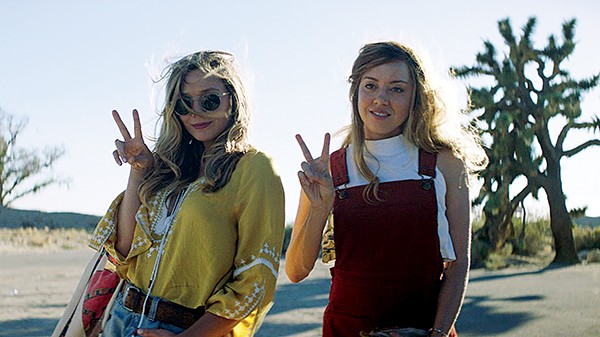When Steve Jobs introduced the iPhone in January 2007, no one really understood the enormous cultural change about to happen. The foundation of the new world was already in place — the internet was 15 years old, and cell phones, many of them with built-in cameras, had been ubiquitous since the turn of the century. But the iPhone — and the smartphones it inspired — brought everything together in a powerful, versatile, easy-to-use package that fit in your pocket.
As the saying goes, a good science-fiction writer could have predicted the automobile, but it takes a great one to predict the traffic jam. Instant, fully portable, audio, video, and data communication had been predicted since the 1930s. The iPhone’s front-facing camera, meant to be used for video conferencing, had comics fans giddy at the thought of finally having their own, working Dick Tracy two-way wrist radio. What almost no one saw coming was the selfie.
Smartphones not only changed our culture, but also the kinds of stories we tell. Plot points that rely on missed communication, for example, are no longer believable. Romeo and Juliet would have ended very differently if the two lovers could have just exchanged text messages before they decided to kill themselves. Horror movies now have a mandatory scene where they establish that the soon-to-be-murdered person is out of cell range.

Elizabeth Olsen (left) and Aubrey Plaza star in director Matt Spicer and writer David Branson Smith’s social media satire.
There have been attempts to grapple with the side effects of this new cultural paradigm, but few have hit the mark harder than Ingrid Goes West. It’s a carefully observed dark comedy, equal parts Sunset Boulevard, Heathers, and The Social Network, about how our emotional needs and self image are shaped by people we’ve never even met.
At the heart of the picture is a penetrating, sharp performance by Aubrey Plaza. The actress gained fame with her flat deadpan in Parks and Recreation, and she’s made a career of being a dependable comedic player, but nothing I’ve seen her in has hinted at the depth she achieves here. When we first meet Ingrid, she is crying bitter tears while flipping through the Instagram feed of a bride-to-be. It’s only when she jumps out of her car and maces the bride that we realize the wedding is in progress.
Once Ingrid gets out of the mental hospital, the roots of her dysfunction are revealed. Her mother has just died after a long, painful illness. She is alone in the world, except for people she follows on Instagram. Tired of watching glamorous Californians eat avocado toast while she munches on hot pockets in front of the TV, she takes her modest inheritance, moves to Los Angeles, and starts a new Instagram account under the name Ingridgoeswest. Her goal is to befriend Taylor Sloane (Elizabeth Olsen), a professional social media influencer who, judging from her photo feed, seems to drift through upscale boutiques, vegan restaurants, and party houses in the high desert.
Ingrid’s inheritance-funded transformation from provincial loser into the image of the perfect California girl is a quintessential American story, from The Great Gatsby to Chicago. Plaza, director Matt Spicer, and writer David Branson Smith turn Ingrid’s desires and methods just a notch above socially acceptable levels and put in her hands the greatest tool for stalking ever invented. Is it even really stalking if the subject does all the surveillance work for you?
O’Shea Jackson Jr. does stellar work as Ingrid’s Batman-loving landlord who gets slowly pulled into her web of lies. Wyatt Russell takes what could have been a throwaway part as Taylor’s ineffectual artist husband and makes it memorable. The only actual villain in this conflicted cast is Billy Magnussen as Nicky, Taylor’s cokehead brother who is, like everyone else in this world, a ruthless social media grifter.
The dynamic between Plaza and Olsen is an intricate deconstruction of the way we build our identities in the social media age. As Ingrid learns once she worms her way into Taylor’s life, social media stars put a lot of work into creating a seamless illusion of happiness and connection with an audience who lives vicariously through them. Ingrid’s biggest fault is that she believes the lie too deeply.